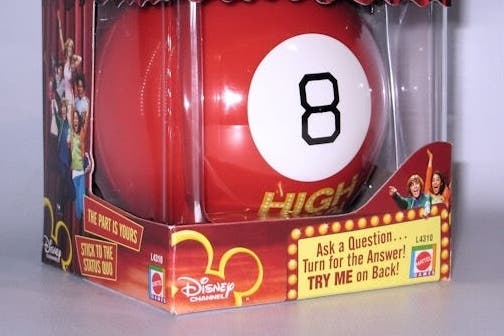Saturday Soapbox: Expert Business Predictions For 2013
Richard Cobbett peers into a Poundland crystal ball.
2013 looks to be a challenging year for the games industry. With no new PlayStation or Xbox on the immediate horizon, anyone already queueing up has a long wait ahead of them. Even titans of the industry will find themselves squeezed as the cost of developing games rises without vast floods of new money to pay. Most importantly, the first real wave of Kickstarter games will be landing, determining the fate of crowd-sourcing in the wake of the Mayan apocalypse.
But those are obvious predictions. What else to expect? Here's the future as laid out by the finest crystal ball our local Poundland had to offer. Accuracy almost certainly guaranteed, maybe. Probably. Give or take a few details.
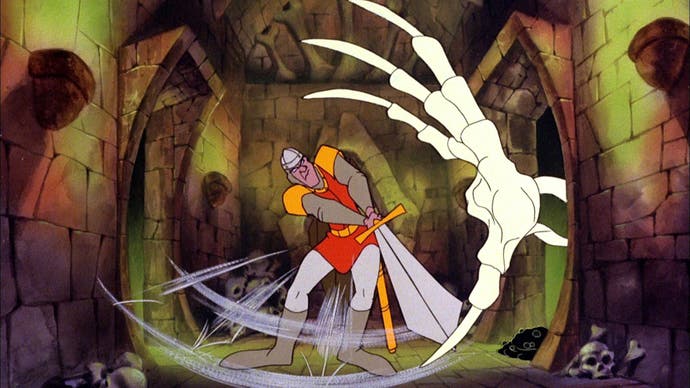
January. As the industry slowly comes to term with the fact that free-to-play isn't the guaranteed license to print money it's sometimes treated as, even the most successful games begin stepping away from micro-transactions in favour of an even more profitable revenue source: ageing billionaires.
"Warren Buffett currently plays 12 hours of bridge a week," points out Rovio CEO Mikael Hed. "We swap that with Angry Birds, and all you peasants buying Space Eagles or whatever can sod off back to tilling the fields. Go Cut The Rope, maybe. I hear that's quite popular with people who don't matter."
Competition for the legendary Buff-Buck is heavy of course, and other billionaires are also targeted. Players soon notice the subtle changes to games intended to appeal to this audience, including the Bill Gates-baiting rebrand of Disney's Where's My Malaria Vaccine? and the addition of a $5,000,000 battle mech to Lord of The Rings Online, purely on the off-chance that Carlos Slim Helu finally takes up the offer to drop in. For the moment though, that's as far as things go in most titles, give or take a few super-premium hats, and XP boosters looking suspiciously like the smiling face of Amancio Ortega.
February. With the second-hand games market increasingly stretched by digital distribution and one-time DLC codes, Game begins accepting blood for trade-in credit. "No, we're not vampires," laughs CEO Martyn Gibbs, "We just figured that if the industry gets to bleed its customers dry, why not us? That's Martin with a y, by the way. Get it right."
Under the new scheme's rules, customers are able to pop into any branch they can still find, where a trained assistant - trained in the use of the till, but it's all good - will find a vein and start draining. One pint equals one pound off any full-price game, with the collected armfuls due to be sold to private hospitals for transfusions, and occasionally used for the most epic water balloon fights ever.
Organ-harvesting has been ruled out, due to health and safety concerns and a general lack of floor space. Going forward, however, other bodily fluids may eventually be considered for trade-in based on market pricing. "We're not taking the piss," clarifies Gibbs. "Semen, maybe, if the board will swallow it."
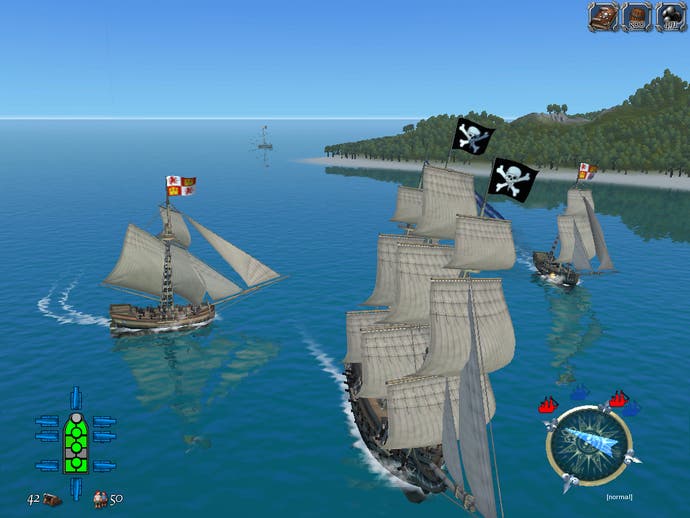
March. Square Enix's head PR guru, fresh from a controversial 2012 full of successes like a Hitman teaser full of nuns in latex fetishwear, a slightly rapey Tomb Raider trailer, and a short-lived Facebook app encouraging friends to accuse either other of having small penises and other hilarious personal insults, decides to conclusively test the theory that there's no such thing as bad publicity by putting on a Lara Croft mask and punching the Pope.
"Well, it definitely got peoples' attention," comes the verdict. "As far as we're concerned, that's a win. They had to buy those copies of the game before throwing them on the bonfires, didn't they?"
April. Valve's Linux Box hits the market in slightly more limited numbers than websites punning "It's free, man!" This rush of gaming goodness gives Linux its biggest ever boost on the desktop, at least until people try to do anything with it and are sent screaming back to an OS for regular mortals. The standalone hardware fares rather better, even if it does appeal primarily to ironic hackers who just want to force it to run Windows 8.
May. Seeing yet another competitor's latest AAA release fall far short of sales expectations, THQ announces that profits from future games will be invested in lottery tickets instead of new IP. "It's more or less the same thing these days anyway," explains president Jason Rubin, red-raw hands coated in silver from trying to personally fund Saints Row 4 with scratchcards.
June. The concept of games as a service now established, services finally start bleeding their way back into games. A industry-first deal between NCSoft and eBay makes it possible to buy almost anything in the world using Guild Wars 2 gems, while PlanetSide 2 picks up where Everquest 2 left off by adding a range of pizzas and other snacks to the in-game depot - delivered in an hour, or your money back. Purchases are in Station Cash, but as part of John Smedley's increasingly strident crusade against hackers, freebies are also on offer for every 25 verified cheater names submitted. To the Yakuza.
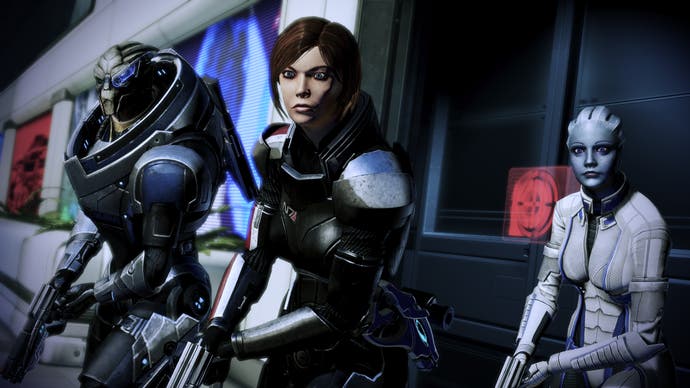
July. Crowd-sourcing finds itself in crisis as larger and larger companies keep turning up to raise the bar, and new supplicants are increasingly forced to turn to Kickstarter just to cover the cost of their Kickstarters.
"We tried simply getting in front of a camera and asking for $50,000 to make Salad Wars 2: Lettuce Try Again," sighs creator Al Plompton. "Our potential backers just said that if we were serious, we'd have David Warner voicing our pitch video, like the Captain Comic HD guys. I mean, come on! Our seed fund came from raiding the sofa for change. We've barely enough for Walken!"
August. Noticing the problem, Peter Molyneux steps up with an alternative in 22Cans' new crowd-sourcing experiment "Credulity" - the not-so-long awaited sequel to Curiosity and Cooperation, whose extended development is now the subject of the hit Broadway play "Waiting for Godus".
"It's the future of game development - an inclusive future, where everyone gets to play a vital role," he tells an excited audience at Gamescom. "Within Credulity, you'll design the game, draw its graphics, code it, compose its soundtrack, even do the marketing... all the fun stuff, without the boring and dull bit of selling it for money, which is where we come in. I can't wait to see what you come up with, especially if it buys that new beach house in Aruba I've had my eye on for a while."
September. With subscription figures still on the wane after Mists of Pandaria, and facing major shareholder pressure, Blizzard releases a surprise fifth World of Warcraft expansion - The Plane of Concrete.
"We wanted to put the sense of discovery back into the game, with a trip to a kind of world players have never experienced before, unless they play Everquest," says Chris Metzen, demoing a thousand square miles of largely featureless terrain sprinkled with monsters and high-level loot. "What lies at the end of your six-month long hike? Hell if I know yet. There must be some villains we haven't killed off yet, right? I'm... uh... open to ideas. Very open. Anyone?"
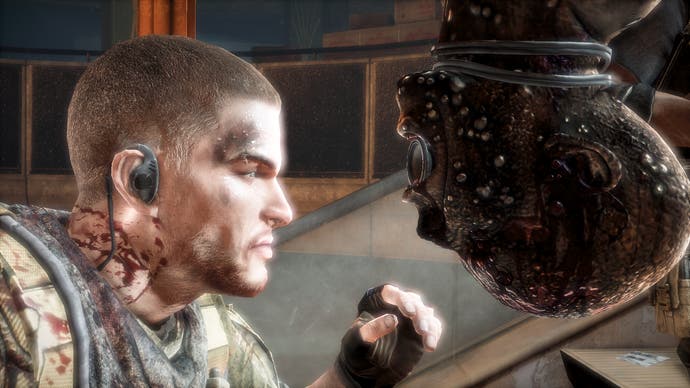
October. Spotting a downturn in e-sport viewership due to the world realising that most MOBA and Starcraft 2 matches are 'exactly the bloody same, really', the World Cyber Games expands its scope to the wider YouTube world with the first ever competitive Let's Play tournament. Prizes are awarded for categories like "Most Obscure Choice Of Game" and "Least Unconvincing Use Of A Scarecam", with the main event scored on wit, subject knowledge, and actively not playing I Want To Be The Guy. All goes pretty well until someone produces a copy of Dark Souls, at which point it just goes on for about seven months longer than anyone is prepared to keep watching.
November. Ubisoft unveils a radical new version of the Uplay client - or to give it its full name, BeforeUplay - ready for the hotly anticipated Watch Dogs. Players firing it up for the first time initially see the same pointless launcher app as ever, only to discover that they're not actually allowed to get started without first completing a demo of a Michel Ancel game.
"Rayman Origins only sold 50,000 copies in its first month. Assassin's Creed 3, 3.5 million in a week," snaps Ancel, "And that thing was balls. My games, they are not coded, but cut from my soul; slices of art that prove this industry is more than murder and tits. They are windows to a world of childlike wonder, and you bastards will start playing them!"
December. With no new consoles to lust after, gamers embrace the true meaning of the season, ask that the money that would have gone to presents be used to help the less fortunate - Mac gamers - and settle back for a quiet holiday of family, relaxation, and the warm inner joy of being around loved ones in an era of at least reasonable peace, prosperity and good health.
Wait, that can't be right. One second...
Oh, damn. Turns out this crystal ball was just a tacky souvenir snowglobe all along. Hmm. In that case, looks like we'll just have to take the next year as it comes. There'll be good games and bad games, tears and cheers. Nobody will have to play Resident Evil: Operation Raccoon City though, so on balance, it'll definitely be better than 2012.
Only a little, perhaps. But hey, every little helps.
